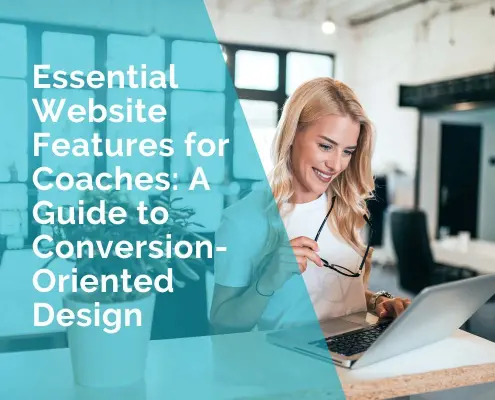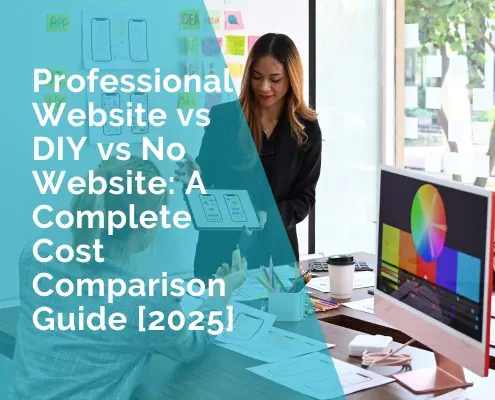Top 7 Benefits Of SEO Marketing For Digital Growth
With the continuing rapid growth of online market space where rivalry reigns, businesses are often required to find solutions for how to distinguish themself in the overwhelmingly digital noise.
In a subliminal environment, it is essential to have proper strategic planning for digital progress. In the middle of the storm, Search Engine Optimization (SEO) has miraculously become the signpost that a business depends on to grow its digital influence.
Able to achieve an impressive level of visibility, generate high-quality visitor traffic, and get the right customers, SEO is an integral part of digital marketing.
This article will take you through the plethora of advantages of SEO marketing as an agent of long-term growth in the online space.
1. Increased Organic Traffic
The capacity of SEO marketing to significantly support organic traffic to your site is its most noteworthy benefit. Getting a decent positioning in search engine results pages (SERPs) is critical in our current reality, where web clients basically depend on web crawlers to get data, merchandise, and administrations.
You might build your site’s credibility for specific keywords by further developing its meta tags, content, and design.
Due to this, your site has a higher possibility of positioning significantly in query terms, getting a steady progression of natural traffic from clients who are effectively searching for what your organization brings to the table.
For instance, if your organization is located in Denver and is looking to take your business to new heights, then a top denver seo marketing firm is just the pitstop for your business.
2. Enhanced Brand Visibility and Credibility
SEO marketing does more for a brand than only increasing traffic; it also makes it seem more credible. Users view your brand as authoritative and reliable when it frequently ranks at the top of search results.
Increased click-through rates and brand familiarity and loyalty are also fostered by this improved exposure. People who use the internet have a tendency to associate websites with high search engine rankings with authenticity and dependability.
Effective SEO tactics help you establish your brand as a leader in your sector, which increases traffic and builds a solid reputation that supports long-term development.
Examples showcasing enhanced brand visibility and credibility through effective SEO marketing:
Apple: By consistently ranking high in search results for terms related to its products, Apple reinforces its reputation as a leading technology brand. Its website’s optimized content and strong backlink profile contribute to its visibility and credibility in the industry.
Marriott International: Through strategic SEO efforts, Marriott ensures that its various hotel brands appear prominently in search results for travel-related queries. This visibility not only increases bookings but also establishes Marriott as a trusted and reputable hospitality provider.
Toyota: Toyota’s SEO strategy focuses on ranking for keywords related to its vehicles and services, enhancing its brand visibility and credibility in the automotive industry. By consistently appearing at the top of search results, Toyota reinforces its reputation as a reliable and innovative car manufacturer.
Nike: Nike’s SEO efforts ensure that its website ranks high for keywords related to athletic apparel and footwear. This visibility not only drives traffic to its online store but also positions Nike as a trusted and authoritative brand in the fashion industry.
In each of these examples, effective SEO strategies contribute to increased brand visibility and credibility within their respective industries. By consistently ranking high in search results, these brands not only attract more traffic but also establish themselves as authoritative and reliable sources, leading to increased brand familiarity, loyalty, and long-term growth.
3. Improved User Experience
Upgrading user experience (UX), is a significant part of SEO marketing. Sites with smooth navigation, fast loads, and astounding content are given priority via search engines.
You can fulfill web search algorithm and clients requirements simultaneously by smoothing out the design of your site, making it quicker, and ensuring it works on all devices.
Bounce rates are brought down, commitment measurements are raised, and repeat business is empowered when clients have an ideal encounter.
Here are several examples showcasing the importance of improved user experience:
E-commerce: Amazon’s one-click purchasing option streamlines the buying process, reducing friction for users and enhancing their overall shopping experience.
Providing personalized product recommendations based on browsing and purchase history increases user engagement and satisfaction.
Streaming Services: Netflix’s intuitive interface and recommendation algorithm make it easy for users to discover new content tailored to their preferences, leading to increased user retention and loyalty.
Seamless playback across different devices ensures a consistent viewing experience, enhancing user satisfaction.
Finance: Mobile banking apps like Chase and Bank of America offer user-friendly interfaces with features such as mobile check deposit and quick account transfers, simplifying banking tasks for users on-the-go.
Investment platforms like Robinhood provide a seamless experience for users to buy and sell stocks with minimal friction, encouraging more frequent engagement.
Travel: Booking.com’s simple search interface and filters help users find the perfect accommodation quickly, enhancing their booking experience.
Airlines like Delta and Southwest offer mobile apps with easy booking, check-in, and flight status updates, reducing stress and improving the travel experience for passengers.
Health tracking apps like MyFitnessPal offer intuitive interfaces and personalized recommendations to help users track their fitness goals and make healthier choices, enhancing user engagement and satisfaction.
In each of these examples, companies prioritize improving user experience by focusing on factors such as ease of use, personalization, and accessibility across different devices, leading to increased customer satisfaction, retention, and ultimately, business success.
4. Higher Conversion Rates
The capacity of SEO marketing to generate more excellent conversion rates by drawing in quality leads is its fourth advantage.
By focusing on certain keywords and user intent, SEO connects companies with people who are actively looking for their goods or services, as opposed to traditional advertising techniques that spread their message widely.
Search engine optimization (SEO) draws highly relevant traffic that is more likely to convert by tailoring content to user searches and pain areas. The likelihood that these qualified leads will carry out the intended actions—buying, subscribing to newsletters, or interacting with your business—is higher.
As a result, search engine optimization (SEO) increases conversion potential and traffic, which supports total digital development and revenue production.
5. Cost-effectiveness
Being more affordable than traditional advertising approaches is one of the most alluring features of SEO marketing. SEO delivers long-lasting benefits at low continuing expenses, but paid advertising requires constant effort to preserve exposure.
Your website will start receiving consistent traffic once it appears highly in organic search results. You won’t have to pay extra for ad spots.
Furthermore, SEO expenditures are more or less constant over time as opposed to sponsored advertising, where expenses might rise quickly. For companies looking for steady digital development without constantly depleting their marketing budget, SEO is, therefore, a prudent investment.
6. Insightful Analytics and Measurement
With analytical instruments like Google Analytics, SEO marketing offers precious information. With the utilization of these tools and resources, organizations can screen significant information progressively, for example, site traffic, client action, and change rates.
Businesses might track down regions for advancement, take advantage of development chances, and acquire significant experiences in the adequacy of their SEO methodology by inspecting this information.
Moreover, having the option to measure the consequences of SEO drives assists organizations with working on their techniques, contributing assets carefully, and pursuing very educated choices.
7. Competitive Advantage and Long-term Sustainability
Businesses might acquire a substantial upper hand and long-haul supportability with SEO marketing in the present exceptionally cutthroat digital climate. However, businesses can beat opponents and take a greater lump of the market by getting the best positions in search engine results.
Besides, as opposed to fads in marketing, SEO’s accentuation on organic exposure and dependability ensures long-haul achievement. Organizations that take part in SEO become perceived as pioneers in their field, prevailing upon clients’ certainty and faithfulness.
Bottomline
Search engine optimization (SEO) marketing is a strategic necessity for continued growth in a complex, competitive Internet sphere.
By utilizing SEO, businesses can improve organic traffic, improve the experience of users, boost conversion rates, and become competitive, all doing it at an average cost.
While digital technologies are constantly being improved, firmly implementing SEO at the strategic foundation of your marketing endeavor is mandatory to fulfill your business goals.












